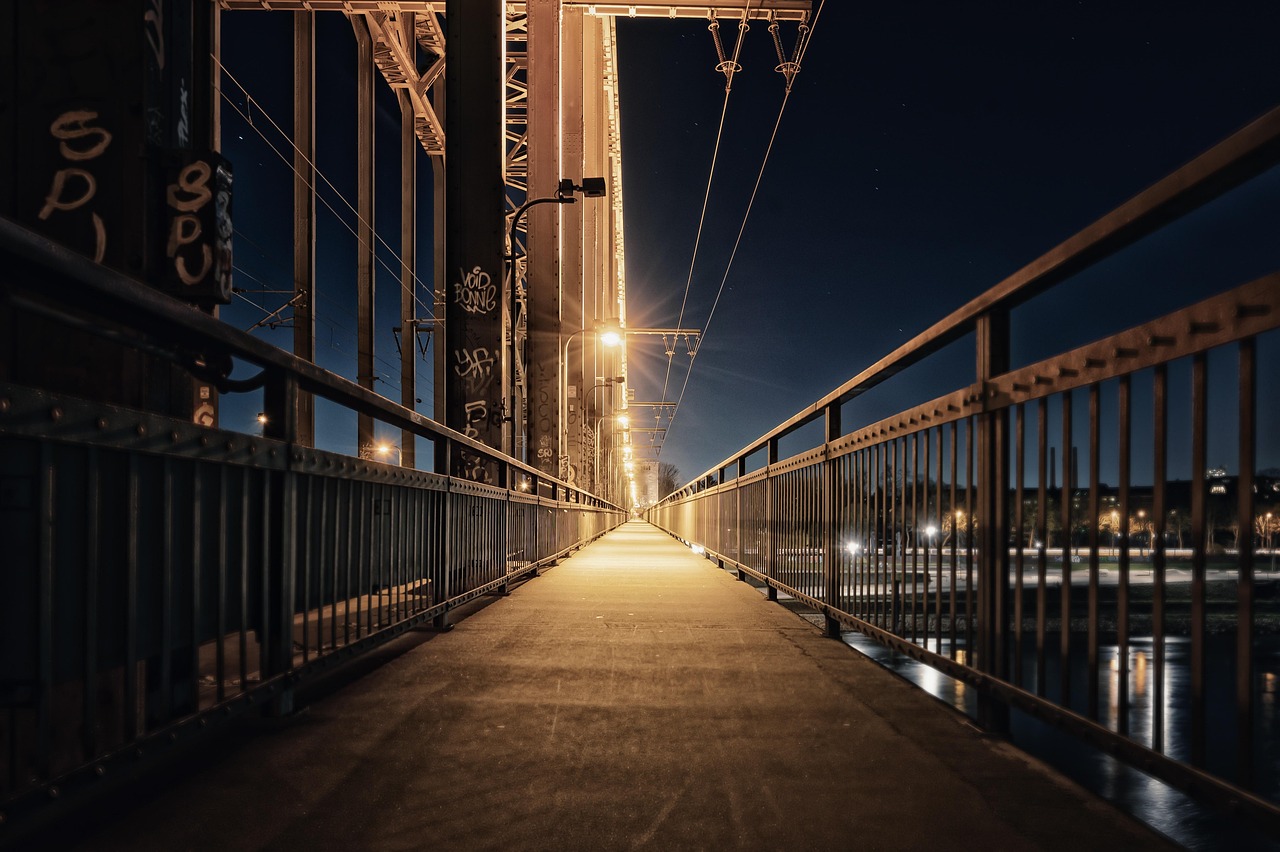Traveling the world can be one of life’s most enriching experiences, offering unparalleled opportunities for personal growth, cultural immersion, and unforgettable adventures. However, prioritizing safety is paramount to ensuring your trip remains memorable for all the right reasons. From petty theft to health concerns and unexpected emergencies, being prepared is the key to navigating potential risks and enjoying your journey with peace of mind. This comprehensive guide will equip you with practical strategies and insights to enhance your travel safety, allowing you to embrace the excitement of exploration with confidence.
Pre-Trip Planning and Preparation
Researching Your Destination
Before you even book your flight, thorough research is crucial. Understanding the local customs, laws, and potential risks can significantly mitigate potential problems.
- Stay informed: Consult travel advisories from your government (e.g., the U.S. Department of State, UK Foreign Office, or Australian Department of Foreign Affairs and Trade). These advisories often highlight specific areas of concern, such as political instability, crime hotspots, or health risks.
- Understand local laws and customs: What is acceptable in one country might be offensive or even illegal in another. For example, certain religious sites may have strict dress codes, and public displays of affection might be frowned upon in some cultures.
- Emergency contacts: Identify local emergency numbers (police, fire, ambulance) and the contact information for your embassy or consulate. Store these numbers in your phone and write them down.
- Health information: Research required vaccinations, potential health risks (e.g., malaria, dengue fever), and the availability of medical facilities in your destination.
Securing Your Home
Don’t advertise your absence! Taking steps to protect your home while you’re away can prevent it from becoming a target for burglars.
- Inform trusted neighbors: Ask a trusted neighbor to keep an eye on your property, collect your mail, and water your plants.
- Hold mail and newspaper deliveries: Prevent mail from piling up, which signals an empty house.
- Install a security system: A visible security system can deter potential intruders. Consider installing smart home devices, such as security cameras and smart lighting, that you can monitor remotely.
- Avoid social media announcements: Resist the urge to announce your trip on social media until you return. You never know who might be watching.
Essential Travel Documents
Losing your travel documents can quickly turn a dream vacation into a nightmare. Protecting and backing up your essential documents is crucial.
- Copies of important documents: Make photocopies of your passport, visa, driver’s license, credit cards, and travel insurance policy. Store these copies separately from the originals.
- Digital backups: Scan your documents and store them securely in a cloud storage service (e.g., Google Drive, Dropbox) or email them to yourself.
- Emergency contact information: Carry a list of emergency contacts, including family members, friends, and your embassy or consulate, in both physical and digital formats.
- Travel insurance details: Ensure you have comprehensive travel insurance that covers medical emergencies, trip cancellations, lost luggage, and theft. Keep a copy of your policy details readily accessible.
On-the-Ground Safety Measures
Protecting Your Belongings
Petty theft is a common problem in tourist areas worldwide. Taking proactive steps to protect your belongings can minimize your risk.
- Be aware of your surroundings: Pay attention to your surroundings and be wary of pickpockets, especially in crowded areas such as markets, public transportation, and tourist attractions.
- Use anti-theft bags: Consider using bags with anti-theft features, such as slash-proof straps, RFID-blocking pockets, and locking zippers.
- Conceal valuables: Avoid displaying expensive jewelry, watches, or electronic devices. Keep your phone and wallet hidden and out of reach.
- Secure your luggage: When traveling by bus or train, keep your luggage in sight or secure it with a cable lock.
Transportation Safety
Navigating unfamiliar transportation systems can present unique challenges. Understanding the risks and taking precautions can help ensure your safety.
- Use reputable transportation: Opt for licensed taxis, ride-sharing services, or public transportation systems. Avoid accepting rides from strangers.
- Share your location: Share your location with a trusted contact when using ride-sharing services or taxis.
- Research local driving laws: If you plan to rent a car, familiarize yourself with local driving laws and traffic regulations.
- Avoid walking alone at night: Stick to well-lit, populated areas, especially at night. If you must walk alone, consider carrying a personal alarm.
Health and Hygiene
Maintaining your health while traveling is essential. Take precautions to prevent illness and address any health concerns promptly.
- Food and water safety: Be cautious of what you eat and drink. Opt for bottled water or ensure water is properly boiled or filtered. Avoid street food from questionable sources.
- Personal hygiene: Wash your hands frequently with soap and water, especially before meals and after using public transportation. Carry hand sanitizer.
- First-aid kit: Pack a basic first-aid kit with essential medications, bandages, antiseptic wipes, pain relievers, and any personal medications you require.
- Be aware of insect bites: Protect yourself from mosquito bites by wearing long sleeves and pants, using insect repellent, and sleeping under mosquito nets, especially in areas with malaria or dengue fever.
Navigating Social Situations
Avoiding Scams and Cons
Tourists are often targets for scams and cons. Being aware of common scams and knowing how to react can help you avoid becoming a victim.
- Be wary of overly friendly strangers: Be cautious of individuals who approach you unsolicited and offer assistance, especially if they seem overly friendly or persistent.
- Avoid giving out personal information: Never give out your personal information, such as your credit card details or passport number, to strangers.
- Be skeptical of unsolicited offers: Be wary of unsolicited offers, such as cheap tours, discounts, or free gifts. These are often scams designed to lure you into a trap.
- Trust your instincts: If something feels off or too good to be true, trust your instincts and remove yourself from the situation.
Cultural Sensitivity
Respecting local customs and traditions can help you avoid misunderstandings and build positive relationships with locals.
- Dress appropriately: Dress modestly, especially when visiting religious sites or rural areas.
- Learn basic phrases: Learning a few basic phrases in the local language can go a long way in showing respect and facilitating communication.
- Be mindful of local customs: Be aware of local customs and etiquette, such as removing your shoes before entering a home or using your right hand to eat.
- Avoid public displays of disrespect: Refrain from engaging in behavior that could be considered disrespectful or offensive, such as taking photos of people without their permission or speaking loudly in quiet areas.
Emergency Preparedness
Creating an Emergency Plan
Having a plan in place in case of an emergency can help you react quickly and effectively.
- Identify emergency exits: Familiarize yourself with emergency exits in hotels, airports, and other public places.
- Know your evacuation routes: In case of a natural disaster or other emergency, know the evacuation routes and assembly points.
- Learn basic first aid: Take a basic first-aid course to learn how to handle minor injuries and illnesses.
- Have a communication plan: Establish a communication plan with your family and friends so they know how to reach you in case of an emergency.
Staying Connected
Maintaining communication with the outside world is crucial in case of an emergency.
- Purchase a local SIM card: Consider purchasing a local SIM card to avoid roaming charges and have access to local emergency numbers.
- Download translation apps: Download translation apps to help you communicate in case of a language barrier.
- Use Wi-Fi hotspots: Utilize Wi-Fi hotspots to stay connected and communicate with your family and friends.
- Invest in a portable charger: Keep a portable charger on hand to ensure your phone stays charged in case of a power outage.
Conclusion
Prioritizing travel safety is an investment in a more enjoyable and fulfilling journey. By taking proactive steps to prepare before you go, remain vigilant while you’re traveling, and develop a plan for potential emergencies, you can minimize risks and maximize your peace of mind. Remember that situational awareness, respect for local customs, and a healthy dose of common sense are your greatest assets. So, pack your bags, embrace the adventure, and travel smart!




